 Maria Lvova-Belova with Philip Golovnya, a 17-year-old boy from Mariupol, now her adopted son
Maria Lvova-Belova with Philip Golovnya, a 17-year-old boy from Mariupol, now her adopted son
On the eve of the anniversary of the invasion of Ukraine Maria Lvova-Belova stood in front of Vladimir Putin and thanked him for giving her another child to raise.
A smiling Russian Ombudsman for Children's Rights has just briefed the president on how many Ukrainian children have been «saved » since the beginning of the war.
Among the approximately 750,000 young people who “came to Russia” was Philip Golovnya, a 17-year-old boy from Mariupol who is now her adopted son. » children of war.
It is said that he was found in the rubble of his coastal city, destroyed by two months of Russian bombardment, with nowhere to go.
But now, friends and relatives have told The Telegraph that the boy was likely taken by Russia against his will, casting doubt on the official story being broadcast on Russian television.
Thousands of Ukrainian children are believed to have been forcibly taken away. to Russia and adopted or nurtured as part of the «Russification» campaign.
 Lvova-Belova is wanted by the International Criminal Court for «illegal deportation children.» — war crime
Lvova-Belova is wanted by the International Criminal Court for «illegal deportation children.» — war crime
Lvova-Belova, 38, and Putin, 70, are wanted by the International Criminal Court for «illegal deportation of children,» a war crime.
State television claims the Russians rescued Philip, as Pilip Golovnya is spelled in Ukrainian, after how he was kicked out of his house during the invasion.
He lived with his mother's ex-husband and new wife, who were appointed guardians after his mother's death from cancer in 2017.
The adoptive parents, now living under tightly controlled Russian occupation, have never publicly challenged the official Russian version.
But they are unlikely to be able to speak fluently, Philip's friends and family say.
Vitaly Golovnya, brother of Philip's guardian Sergei, denied Russia's allegations against Philip.
«There was no way they could just throw him out,» said Mr. Golovnya, who fled to Ukraine. occupied territory during the siege of Mariupol.
“We were all together in Mariupol when it was captured,” he said.
“Philip was simply forcibly taken away, like many children.”
p>
Mr Golovnya, who now lives abroad, said he was separated from his brother during the Russian invasion and has not spoken to him since Christmas.
Friends and family often avoid direct communication across the front lines, because they are afraid to be associated with the enemy.
р><р>Many details of Philip's story are almost impossible to verify. It demonstrates the prosecutors' problems in collecting evidence to bring Putin, Lvova-Belova and other potential suspects to trial.
Ukrainian Longread — Philip's Journey
Philip's Russian story is told through «That's My Baby,» a half-hour documentary broadcast on an ultra-nationalist TV channel with dramatic footage of war-torn Mariupol and interviews with him and his new foster mother.
He says that Ukrainian forces at some point «entered Mariupol» and threw Molotov cocktails at civilians, claims that contradict well-known facts about one of the bloodiest chapters of the Russian war.
The teen v glasses fidgets nervously. with a ring on his index finger during an interview. He tells how he took refuge in the basement of his house when the building caught fire.
“I went home,” Philip says.
“My guardian said:“ What are you doing here? Go back to where you came from. He closed the door. I knocked again. I asked for my documents. He gave them to me and I left.”
The documentary then shows archival footage of burned cars at a bombed site in Mariupol.
 Philip's Russian story is told in a half-hour documentary » This is my child”, broadcast on an ultra-nationalist TV channel, with dramatic footage of war-ravaged Mariupol. 081a8f2456f0b0a4ad150eae21e46480.jpg» />Dwelling houses in Mariupol were damaged during the invasion Photo: PAVEL KLIMOV
Philip's Russian story is told in a half-hour documentary » This is my child”, broadcast on an ultra-nationalist TV channel, with dramatic footage of war-ravaged Mariupol. 081a8f2456f0b0a4ad150eae21e46480.jpg» />Dwelling houses in Mariupol were damaged during the invasion Photo: PAVEL KLIMOV
The Telegraph's requests for phone interviews with the boy's guardians went unanswered.
But a friend of Irina Kalatalova, Golovnya's wife, also dismissed suggestions that the couple had thrown the boy out in the middle of the war.
«This simply impossible,” Olga Tulainova told The Telegraph.
“I have known her for most of my life. She's not the kind of person to do something like that.»
 Philip has become a symbol of the Russian program 'salvation&# 39; children of war
Philip has become a symbol of the Russian program 'salvation&# 39; children of war
Ms. Tulainova fled to government-controlled areas of Ukraine and did not keep in touch with Ms. Kalatalova, a pattern repeated between Ukraine's now divided south and east.
Philip's unnamed teacher told Ukrayinka Radio Free Europe this year also had doubts that Philip's guardians had abandoned him.
The woman, who wished to remain anonymous out of fear for her safety, said that the boy was well taken care of in Mariupol, and his adoptive parents were studying at school.
This is my child imitating Lvova-Belova. , a petite blonde with a penchant for airy dresses, like a savior.
She is shown giving up her comfortable life in Moscow, where she enters a black Mercedes showroom in a white fur coat. save children from smoking Mariupol.
 In the film This Is My Child, Lvova-Belova saves children from smoking Mariupol.
In the film This Is My Child, Lvova-Belova saves children from smoking Mariupol.
Philip was taken from Mariupol to Russian-controlled Donetsk and then to a resort near Moscow last spring, along with an unspecified number of other children.
Both Philip and Lvova-Belova describe their meeting there as a kind of love at first sight.
“The moment I spoke to him, I realized that he was mine: this is my child,” she said, and Philip called her “the most wonderful person I have ever met” .
In the Lvova-Belova documentary, the mother of 10 children—five biological and five adopted—is interviewed in front of a fireplace, sitting next to her husband, Pavel Kogelman, an IT engineer turned Orthodox priest.
Lova Blova
During the past 17 months of war, the Kremlin tried to use a young and good-looking role model as a human face for the Russian deportation campaign.
Lvova-Belova is from Penza, a city 400 miles east of Moscow. In 2021, she replaced the post of commissioner for children's rights with her old friend and colleague Anna Kuznetsova, another young mother of many children and an Orthodox priest in her husband.
Both were actively involved in charity work, helping orphans and disabled children .
Oleg Sharipkov, a respected Penza charity worker who met them at the age of 20, called the couple «ordinary girls.»
Other former colleagues described her as «a charming young woman and a good fundraiser,” who had a gift for getting people involved in her work.
 Lvova-Belova did not appear to be a devout Christian until the mid-2010s, when Putin's third term in power ushered in an era of conservatism with an emphasis on «traditional values.»
Lvova-Belova did not appear to be a devout Christian until the mid-2010s, when Putin's third term in power ushered in an era of conservatism with an emphasis on «traditional values.»
Both Lvova-Belova and Kuznetsova appeared to be devout Christians until the mid-2010s, when Putin's third term in power ushered in an era of conservatism with an emphasis on «traditional values.»
According to Sharipkov, these women have become the «dream of a political strategist» for the Kremlin.
The Lvova-Belova charitable foundation began to receive generous donations from the government of the Penza region and businesses that relied on the government for lucrative contracts.
Mr Sharipkov said colleagues from other NGOs warned her about the risk of getting too close with the Kremlin.
But soon Lvova-Belova began to communicate with the governor and senior local officials. She seemed to be competing with Kuznetsova in «who will have more children, who will be more pious,» Mr. Sharipkov said.
Mr. Sharipkov, whose NGO has been labeled a «foreign agent» due to his apparent refusal to follow the Kremlin's line, said he was stunned by Lvova-Belova's transformation.
«I think she really believes into what she says,” he said.
“She was once someone who sincerely wanted to help others. Then, apparently, something clicks in your head — and before you have time to come to your senses, you turn into a little monster. >Lvova-Belova and Vladimir Putin are wanted by the International Criminal Court for 'illegal deportation of children' Photo: Mikhail Metzel/Sputnik/Kremlevskiy Pool/EPA-EFE/Shutterstock
The exact figures for deportations vary, but Lvova-Belova herself reported in April that more than 730,000 children have “arrived in Russia” since the invasion of Russia began. February 2022
Ukraine has identified at least 11,000 children deported to Russia and about 400 children placed in foster families.
They include Philip, who joined the Lvova-Belova family “all thanks to Putin,” she told reporters. The President of Russia himself in February.
Copy of «Children of War»
Human rights activists condemned Russian officials for placing Ukrainian children in foster families without proper background checks. Russia insists it is saving children from the hardships of war.
Ukrainian minors in foster care in Russia are trapped and at risk of brainwashing, says Mikhail Savva, an expert at the Nobel Laureate Center for Civil Liberties in Kiev .
“These kids are the most vulnerable,” she told The Telegraph.
“They can't go away on their own. These children are at particular risk — for them the likelihood that they will lose their identity is very, very high. They are not yet old enough to form their own worldview or resist attempts to impose a new one on them.”
The Telegraph contacted Ms. Lvova-Belova, but received no answer.








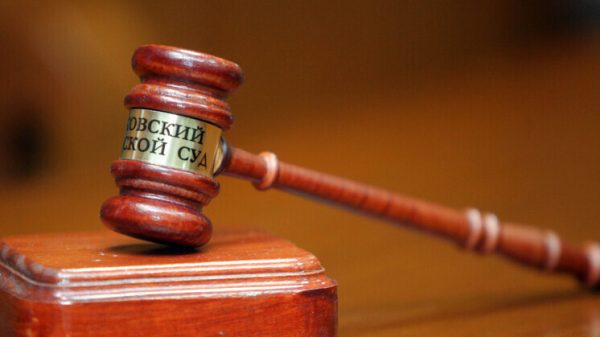

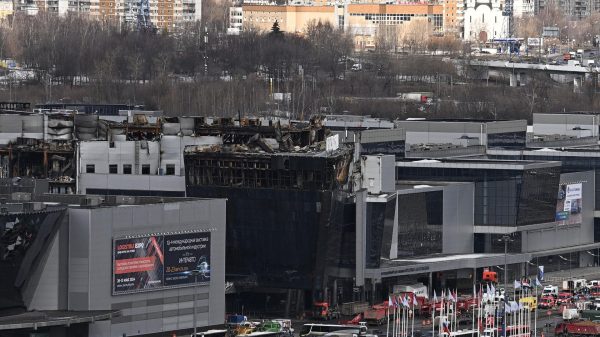







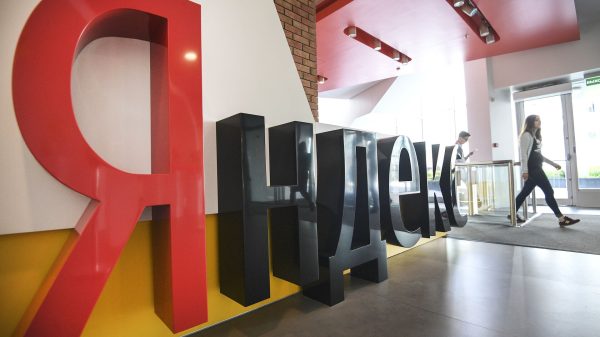
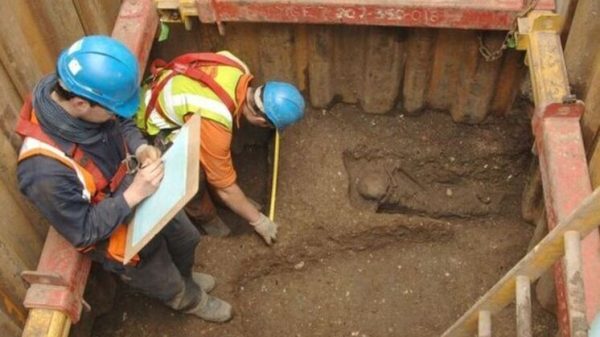
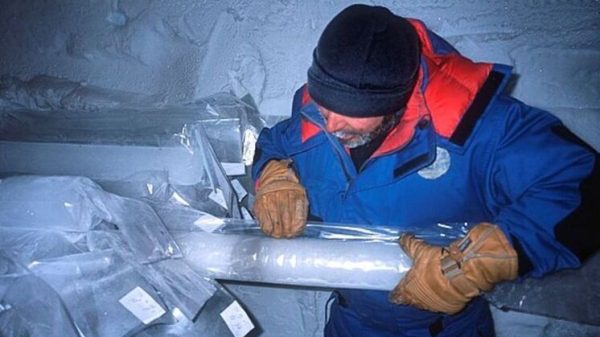















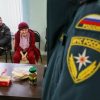
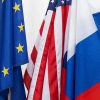
















Свежие комментарии